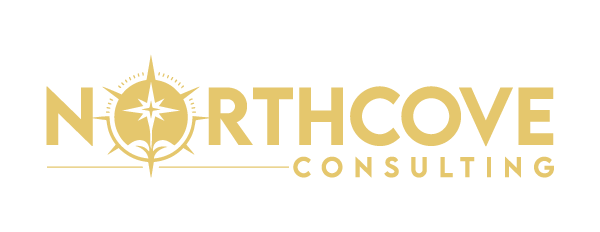
Understanding Total Rewards and Compensation for a Competitive Workforce
Are your rewards sufficient? Empower your employees to achieve their maximum potential with an effective total rewards plan. Businesses need carefully designed total rewards and compensation plans to draw and maintain superior employees.
Organizations require total reward solutions for talent management in order to increase motivation and performance levels. Companies achieve higher employee engagement levels and performance through combining financial and non-financial rewards.
A consulting agency focuses on offering executive compensation advisory services customized to essential business requirements. The companies use data-based strategies to tie executive compensation to actual business achievements.
Proper knowledge of compensation and reward management approaches forms the basis for developing a highly competitive workforce. Let’s explore further the concept of total rewards and create a workforce that is not only employed but also genuinely engaged.
What is the Difference Between Total Rewards and Total Compensation?
Most people believe that total rewards and compensation refer only to salary, yet they encompass more elements than just that. Base salary bonuses and incentives make up total compensation, whereas total rewards comprise benefits recognition and career development opportunities.
Organizations that distinguish between these concepts design improved employee value propositions. Employees receive fair compensation packages, and workplaces become more engaging only when organizations understand both total rewards and total compensation principles.
Kesin’s compensation and reward approach provides organization-wide employee motivation and commitment.
The Key Elements of a Strong Compensation and Reward System
Every compensation and reward system must contain base pay and incentives together with benefits and opportunities for career progression. The compensation system needs to match organizational goals and reinforce employee health as well as motivation levels.
Incentives linked to performance, together with competitive salary rates, improve staff involvement as well as work efficiency. Workplace benefits created for individual employees deliver better satisfaction alongside flexible programs for working.
The efficient management of total rewards and compensation systems enables companies to recruit high-level professionals.
How Compensation and Rewards Are Integrated with Performance Appraisal
Organizations achieve better business performance when workers receive compensation based on their achievements.
Key Benefits of Performance-Linked Rewards:
- Fair Recognition: Organizations that integrate compensation benefits with appraisal processes grant proper acknowledgment to their best performers.
- Accountability Culture: Transparent accountability occurs through merit-based compensation along with bonuses, which leads to promotions at work.
- Talent Retention: Taking a pay-for-performance approach helps organizations succeed in keeping and preserving their talented employees.
- Workforce Efficiency: The implementation of properly designed compensation and total rewards systems generates better business productivity outcomes.
Total Rewards and Compensation for Workforce Motivation and Loyalty
A properly designed total rewards and compensation system creates a happier workforce alongside decreased employee exodus. When employees receive competitive pay in addition to career advancement chances, they will stay devoted to their work.
Recognition programs, together with non-monetary perks, create better employee retention throughout lengthy periods of work. Organizations that focus on rewarding their employees with substantial compensation develop a powerful reputation as an employer.
A fair compensation and reward system structures the workforce for extended periods. Focusing on employee engagement and retention is a must for ongoing success and a devoted, loyal workforce.
Executive Rewards and Compensation for Leadership Retention
Leaders at the highest level need customized executive rewards and compensation packages that will keep them in their roles. The main factors driving executive motivation include equity plans as well as performance-based bonuses and retirement benefits.
Organizations need to link executive pay to business performance outputs for enduring business success. A flawless and open leadership pay structure establishes both trust and responsible conduct. The compensation strategy for executive personnel determines organizational expansion.
Current Trends in Compensation and Reward Management
Modern current trends in compensation and reward management target adaptable systems that tailor themselves to individual needs.
Latest Trends in Reward Strategies:
- Pay Transparency: Increased openness in compensation structures fosters fairness and employee trust.
- Flexible Benefits: The workforce at present requires remote work provisions together with wellness benefits as central elements.
- AI-Driven Insights: Analytics enable organizations to enhance total rewards and compensation strategies, which leads to better workforce planning results.
- Higher Employee Satisfaction: Organizations that implement these trends will experience improved workforce morale, retention, and employee engagement.
The Role of Benefits in a Competitive Compensation and Reward Management Strategy
Customer benefits form a key part of both total rewards and compensation packages and workplace satisfaction systems. The combination of complete health coverage and retirement benefits, together with stock options, serves as a key factor that draws qualified employees to work for a company.
Organizations that offer wellness programs as non-monetary benefits enable workers to maintain better work-life equilibrium. Company benefits that align with personal situations help employees develop commitment toward their organization.
A company needs an exceptional compensation and reward system to retain workers over time.
How Organizations Can Improve Compensation and Reward System Strategies
Organizations that conduct ongoing benchmarking processes achieve competitive levels of total rewards and compensation. Organizations that perform regular market analyses can develop pay packages that are both fair and appealing to potential candidates.
Feedback from employees allows organizations to improve their reward systems since it results in improved staff engagement. Companies that connect their rewards systems to their business targets will reach their maximum retention goals.
Employee satisfaction, together with performance enhancement, is directly driven by strategic compensation reward management approaches.
Effective Onboarding Through Clear Total Rewards Communication
The start of onboarding consists of an exciting process that displays total rewards and compensation benefits to new employees.
Onboarding Strategies for Stronger Engagement:
- Clear Benefit Communication: Training new workers about pay packages, along with benefits and professional advancement possibilities, creates employee assurance.
- Support Systems: Job satisfaction rises while employee loyalty increases because of a well-established mentorship program supported by a strong network.
- Structured Reward Introduction: The presentation of compensation and reward systems during onboarding generates teams who maintain high motivation.
- Long-Term Retention: Quality onboarding creates higher employee dedication and decreases staff departures during the initial period of employment.
Effectively conveying benefits while learning how to onboard a new employee creates a basis for enduring achievement.
Enhancing Business Growth with Total Rewards and Compensation
Organizations that develop strategic total rewards and compensation programs achieve both high staff dedication and business success. Firms that maintain transparency alongside fairness develop trusted workplaces with strong team relationships.
Businesses that spend resources on incentive plans acquire both innovative workers and enduring employee dedication. Therefore, invest in your workforce and boost your expansion: strategic incentives drive a prosperous, competitive enterprise.
Closing Notes
A business needs a properly designed compensation and reward system to maintain staff consistency and work drive. Whereas, companies need to link their compensation systems to business goals in order to maintain continuous growth.
Northcove Consulting builds total rewards and compensation programs that help organizations keep valuable staff while improving team-member commitment. These executive compensation consulting services ensure equitable salaries, adherence to laws, and attractive compensation packages.
Organizations that monitor the modern developments in monetary benefits solutions remain competitive in their markets. Knowing the process for employee onboarding with defined rewards and benefits leads to long-term employee retention. For more details, contact us at 720-470-2841 or email your query to [email protected].
FAQs
What are the benefits included in total rewards and compensation?
They include base salaries and bonus programs, in addition to benefit packages and professional growth paths, together with employee recognition initiatives.
What is the difference between total rewards and total compensation?
The core elements of compensation are equal total pay, but total rewards integrate pay with development and benefits.
What effect do compensation and reward management have on employee retention?
Effective compensation packages with fair pay standards help organizations maintain employee engagement while decreasing employee departures.
What are the common current trends in compensation and reward management?
The current trends in compensation and rewards management consist of pay transparency alongside AI analytics together with flexible work options.
In what ways do executive incentives and pay affect the success of a business?
Competitive leadership pay helps organizations achieve alignment between strategic goals and sustainable development.
Related Posts
How to Build a Winning Sales Compensation Strategy for Sustainable Growth
How to Build a Winning Sales Compensation Strategy for Sustainable Growth Is your sales compensation…
How to Create a Total Compensation Statement That Employees Will Appreciate
How to Create a Total Compensation Statement That Employees Will Appreciate An effective total compensation…
Understanding the Key Components of Total Reward and How They Benefit Employees
Understanding the Key Components of Total Reward and How They Benefit Employees It requires more…
How Total Rewards Employee Benefits Improve Retention and Job Satisfaction
How Total Rewards Employee Benefits Improve Retention and Job Satisfaction In the highly competitive job…







